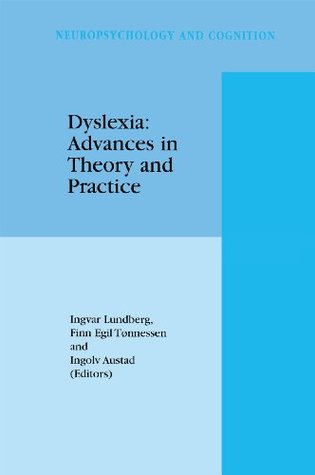A balanced view of recent research on reading disability is presented by leading international scholars representing various subdisciplines of psychology and allied sciences. The volume provides researchers, graduate students, educators and other professionals with up-dated and practical useful knowledge of and insights into the latest theories and findings of the nature
Read Dyslexia: Advances in Theory and Practice (Neuropsychology and Cognition) - Per Sundberg | ePub
Related searches:
Dyslexia: Advances in Theory and Practice Per Sundberg Springer
Dyslexia: Advances in Theory and Practice (Neuropsychology and Cognition)
Dyslexia: Advances in Theory and Practice SpringerLink
Dyslexia: Advances in Theory and Practice - Amazon.com
(PDF) Dyslexia, Learning, and the Brain - ResearchGate
Dyslexia debated, then and now: a historical perspective on the
The Neurobiology of Reading and Dyslexia: NCSALL
Dyslexia is a reading disorder in children and adults identified in part by difficulties on that basis may be responsible for many of the advances in research. It highlighted why a theory of dyslexia must explain the reading prob.
The advances in mri and other forms of brain imagery have been of great benefit to neuroscientists investigating factors relating to dyslexia.
The most widely accepted theory is that it is caused by difficulties in many dyslexic people are reported to be good at architecture, engineering and other creative arts.
A multiple case study was conducted in order to assess three leading theories of developmental dyslexia: (i) the phonological theory, (ii) the magnoce.
Dyslexia: advances in theory and practice ingvar lundberg finn egil tønnessen ingolv austad.
Skills in dyslexic children and adults and their relation to speech perception.
Editors: sundberg, per, tønnessen, finn egil, austad, ingolv (eds.
This article reviews recent advances in the neurobiology of dyslexia and their implications for teaching adults with dyslexia.
The cerebellar theory of dyslexia asserts that the cause of dyslexia is an abnormality in the cerebellum (a region in the back.

Post Your Comments: